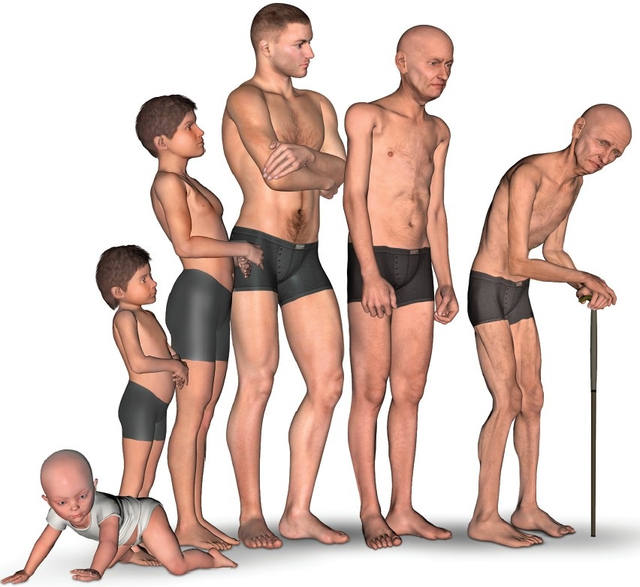-
Tips for becoming a good boxer - November 6, 2020
-
7 expert tips for making your hens night a memorable one - November 6, 2020
-
5 reasons to host your Christmas party on a cruise boat - November 6, 2020
-
What to do when you’re charged with a crime - November 6, 2020
-
Should you get one or multiple dogs? Here’s all you need to know - November 3, 2020
-
A Guide: How to Build Your Very Own Magic Mirror - February 14, 2019
-
Our Top Inspirational Baseball Stars - November 24, 2018
-
Five Tech Tools That Will Help You Turn Your Blog into a Business - November 24, 2018
-
How to Indulge on Vacation without Expanding Your Waist - November 9, 2018
-
5 Strategies for Businesses to Appeal to Today’s Increasingly Mobile-Crazed Customers - November 9, 2018
Signs of aging appear in mid-20s, study finds
Looking around at a 20th high school reunion, you might notice something puzzling about your classmates.
Advertisement
The scientists claim that most of the difference in ageing rates are down to environmental factors rather than genes, and so could be altered.
This research, gleaned from participants in the university’s long-running Dunedin Multidisciplinary Study, could open a new door to therapies to slow ageing and help prevent age-related diseases.
“We set out to measure aging in these relatively young people”, says first author Dan Belsky, an assistant professor of geriatrics at Duke University.
Belsky said the progress of aging shows in human organs just as it does in eyes, joints and hair, but sooner.
All were aged 38 – but their biological ages ranged from 28 to 61. They included measures of kidney and liver function, cholesterol levels, cardiovascual fitness and the lengths of teleomeres, which are protective caps that sit on the ends of chromosomes.
To study the pace at which participants aged, scientists measured the 18 biomarkers when the participants were 26, 32, and 38-years-old. Combining the measurements allowed scientists to determine each individual’s pace of ageing.
“While most people tested were clustered around one biological year per chronological year, others were found to be ageing as fast as three biological years per actual year”, Prof Poulton said. Many were aging at zero years per year, in effect staying younger than their age.
Though some people really were biologically older than they are, the good news is that some were younger than their chronological age and aging more slowly than they should be.
It is said that time waits for no man, but biologically speaking some people are barely ageing at all while others are speeding through their lives at the rate of three years every 12 months, scientists have found.
The study team focused on roughly 1,000 men and women who had been participating in an ongoing New Zealand study since their birth in 1972-1973. Of the original group, 30 had died by the age of 38 due to serious diseases such as cancer, or by accidents, suicides and drug overdoses. Another 26 did not take part in the study at age 38.
Those whose bodies were aging faster also “scored worse on tests typically given to people over 60, including tests of balance and coordination and solving unfamiliar problems”, said the study. The biologically older individuals also reported having more difficulties with physical functioning than their peers, such as walking up stairs.
Photographs of the volunteers were also handed out to students at Duke University who were asked to assess their age.
The aging process isn’t all genetic.
“Even before they develop age-related diseases, their physiology shows signs, and there is great variation in how fast people ageed in the past 12 years”, Belsky said.
Professor Terrie Moffitt, co-author of the report, said: “That gives us hope that medicine might be able to slow ageing and give people more active years”.
Advertisement
“The time is right for this kind of multi-factorial way of measuring the aging process, but the measures and methods will have to be refined to be “better, faster and cheaper”, Dr Belsky says”.





























